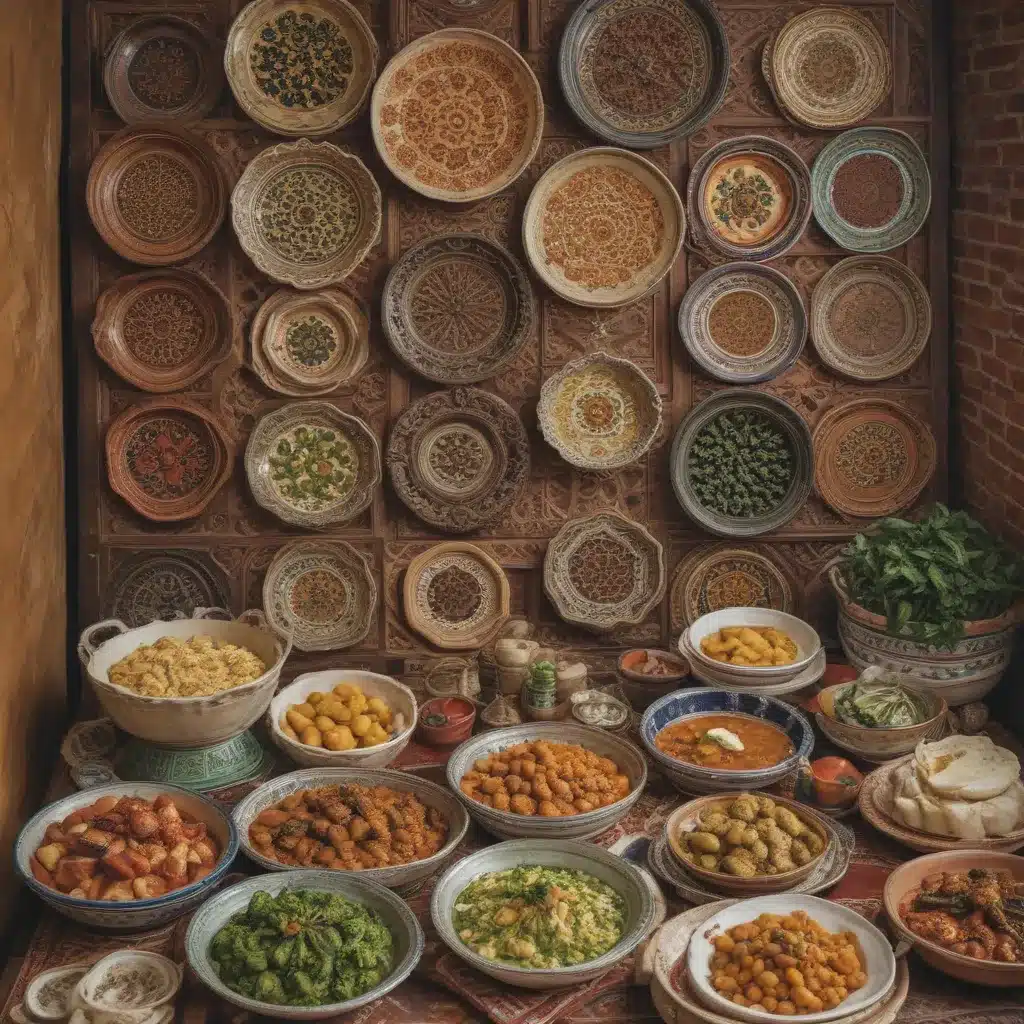
Embracing the Spirit of Moroccan Cuisine
As I step into El Bahia, the Moroccan restaurant in the heart of New York City, the aromatic spices and vibrant colors immediately transport me to the bustling souks of Marrakech. The owner, Fatima, greets me with a warm smile and a cup of freshly brewed mint tea, a quintessential ritual that embodies the hospitality at the core of Moroccan culture.
Fatima’s journey to bringing the flavors of her homeland to America began years ago, when she would meticulously recreate her grandmother’s recipes in her tiny kitchen, longing for the tastes and sounds of her childhood. “Food has always been the thread that connects me to my roots,” she explains, “and I knew I had to share this rich culinary tradition with the world.”
Exploring the Melting Pot of Moroccan Cuisine
Moroccan cuisine is a true melting pot, reflecting the country’s diverse cultural influences over centuries. As I sit down and peruse the menu, I’m struck by the complexity and depth of the dishes, each one a testament to Morocco’s storied history.
According to Moroccan food blogger Nadia Hassani, the origins of Moroccan cuisine can be traced back to the Berbers, the indigenous inhabitants of the region. They introduced the iconic tagine pot and slow-cooking techniques that are still widely used today. The arrival of the Arabs in the 7th century brought a wealth of spices from the East, while the Moors from Spain introduced the use of olives and olive oil.
The influence of the grand Moroccan courts and the country’s geographical position as a crossroads of civilizations have also left indelible marks on the cuisine. Fatima proudly shares, “Each dish we serve here at El Bahia is a tapestry of cultures, with flavors that have been passed down through generations and meticulously refined over time.”
The Art of Communal Dining
One of the most striking aspects of Moroccan cuisine is the emphasis on communal dining. As I learned from the City Nibbler blog, the majority of Moroccan homes do not have their own ovens, relying instead on communal ovens within their neighborhoods to bake bread and other baked goods. This tradition not only saves time and money, but it also fosters a sense of community and connection.
At El Bahia, Fatima has recreated this communal experience, with dishes served family-style and meant to be shared. “In Morocco, meals are not just about nourishment,” she explains. “They’re about coming together, sharing stories, and creating lasting memories. I wanted to bring that spirit of togetherness to our restaurant.”
As I dive into the steaming tagine of lamb with prunes and almonds, I can’t help but notice the way the flavors meld together, each bite a harmonious symphony. The couscous, fluffy and infused with fragrant spices, becomes a vehicle for the rich, slow-cooked meats and vibrant vegetables. It’s a culinary dance that invites me to slow down, savor each moment, and truly connect with the people I’m sharing this experience with.
Honoring Tradition, Embracing Innovation
While Fatima is passionate about preserving the authentic flavors and traditions of Moroccan cuisine, she also understands the importance of adapting to the preferences and dietary needs of her American customers. “I wanted to create a menu that would be both familiar and exciting for our diners,” she says.
One of the standout dishes on the menu is the vegetarian tagine, a testament to Fatima’s ability to reinvent classic recipes while staying true to their essence. As the CIEE student Allison Ollie observed during her time in Morocco, the Moroccan relationship with food is one of abundance, with meals often consisting of a variety of meats, vegetables, fruits, and ample helpings of bread.
Fatima has captured this spirit of generosity and diversity in her vegetarian tagine, layering flavors like tangy preserved lemons, aromatic spices, and tender vegetables. “I wanted to show that Moroccan cuisine is not just about meat,” she explains. “There is a wealth of vibrant, plant-based dishes that are just as satisfying and authentic.”
Bridging Cultures, One Bite at a Time
As I savor the final bites of my meal, I can’t help but feel a sense of gratitude for Fatima’s unwavering dedication to sharing the rich culinary heritage of Morocco. El Bahia is not just a restaurant; it’s a gateway to a world of flavors, traditions, and cultural exchange.
“My dream is for every person who walks through these doors to leave with a deeper understanding and appreciation of Moroccan cuisine,” Fatima says, her eyes shining with passion. “Food has the power to bridge cultures, and I’m honored to be the one introducing America to the vibrant, complex, and utterly delicious flavors of my homeland.”
As I step out into the bustling streets of New York City, I can’t wait to return to El Bahia, to experience the flavors of Morocco once again and to be transported to a world where the language of food transcends all boundaries.


